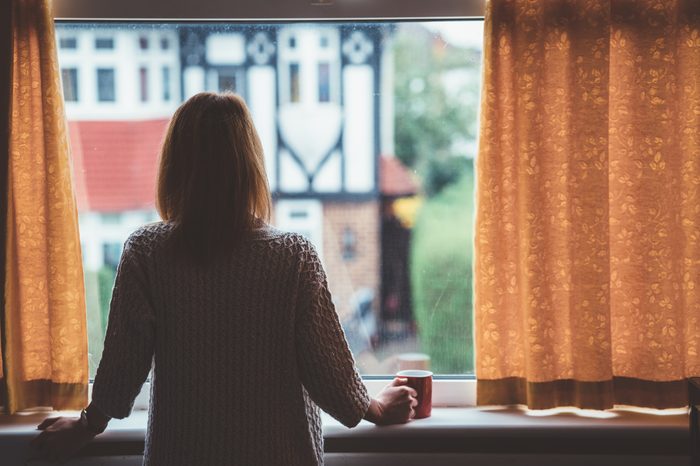
Extreme stress during quarantine
If you’re currently feeling worried or uncertain at the moment, you’re not alone. The outbreak of the coronavirus (Covid-19), first reported in Wuhan, China, is now in more than 160 countries including Canada. There are school closures, work-from-home mandates, and other government restrictions that have dramatically put a halt to “normal” life. Now, the new normal is “social distancing” and being mostly housebound to help prevent further spread of the disease. And for people at risk, this isolation may set the stage for the onset of depression.
“We know that a significant percentage of the population has pre-existing mood or anxiety disorders and are more likely to have difficulty coping with extreme stress,” says Victor M. Fornari, MD, vice-chair of child and adolescent psychiatry at the Zucker Hillside Hospital in Glen Oaks, New York. This is coupled with others who may not have been diagnosed with depression or anxiety in the past, but are at risk now due to financial instability brought on by the Covid-19 pandemic and/or fear of getting sick or fear that vulnerable friends and family will become ill, says Dr. Fornari. (Find out how doctors are protecting themselves from the coronavirus.)
Know the warning signs of depression so you can act quickly and prevent a downward spiral, adds Brittany LeMonda, PhD, a senior neuropsychologist at Lenox Hill Hospital in Manhattan. “Feelings of sadness, difficulties getting out of bed, poor sleep (insomnia or sleeping too much), poor eating habits, turning to drugs, alcohol or tobacco to cope, self-isolation/distancing more than is recommended are all red flags,” she says. Other signs include anger outbursts, ruminative or obsessive thinking patterns, thoughts about harming oneself, or feelings of hopelessness/helplessness. “It is important for family members, friends, and coworkers to recognize these signs in high-risk groups.”
To stave off depression, our mental health experts offer their tips on ways to cope during Covid-19.
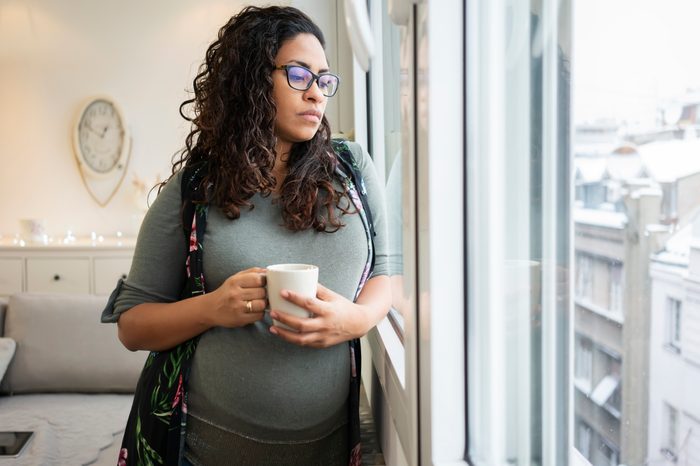
Give yourself a break
It’s OK to be not OK right now, says Robin D. Friedman, a psychotherapist at Lotus Psychotherapy in White Plains, New York. You may feel hopeless and unable to see out of this current situation, she says. “Feelings are like waves. They come and go and in these moments, we can look to the strength of others such as family, friends, neighbours and even strangers.”
(Psst: These are the coronavirus symptoms to watch out for.)

Plan a virtual tea party
Although self-isolation is in full effect, you can harness technology for a virtual meal/tea party with friends or plan an online play date for your children. “Just because we need to practice social distancing doesn’t mean we need to be socially isolated,” Friedman says. “Use technology be creative.”

Lend a helping hand
Seniors may be more likely to be socially isolated. Also, many may not be as tech-savvy or as connected as their younger counterparts. Drop off meals, letters, books or small gifts to put a smile on their face, Friedman suggests. “Being a helper is an important coping skill.” Consider donating to a charitable organization for senior citizens.
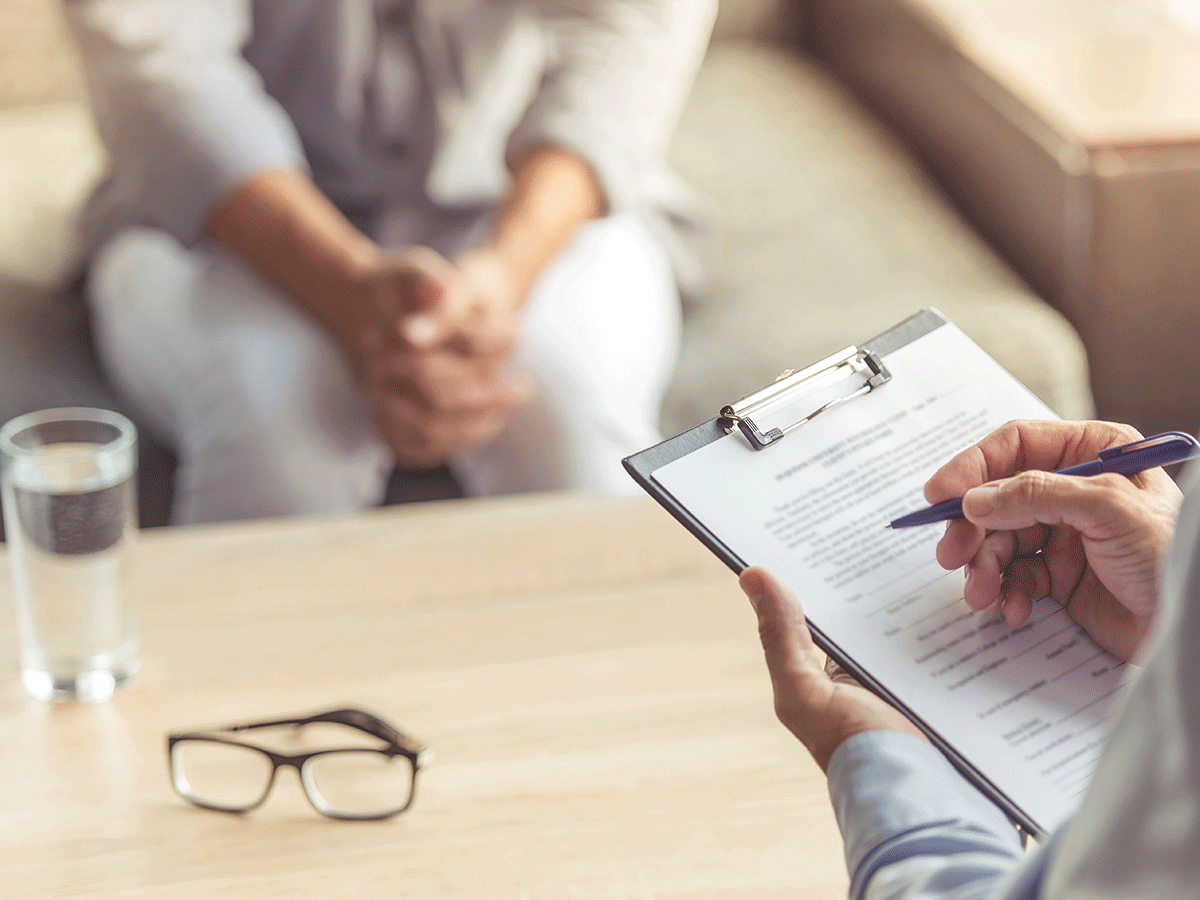
Connect with a therapist
Many therapists are moving their counselling sessions online or conducting them over the phone, says Friedman—she’s now seeing all of her patients virtually. Even if you don’t currently have a therapist, you should be able to identify one who offers virtual support, she says. “Mental health professionals are still working and many are taking new clients.” In some cases, medication may be needed along with talk therapy, she says. If you are feeling overwhelmed, or feel like you want to harm yourself or someone else, call 911 or the National Suicide Prevention Lifeline at 1-800-273-TALK (1-800-273-8255). (Here are some expert tips for finding the best therapist for you.)
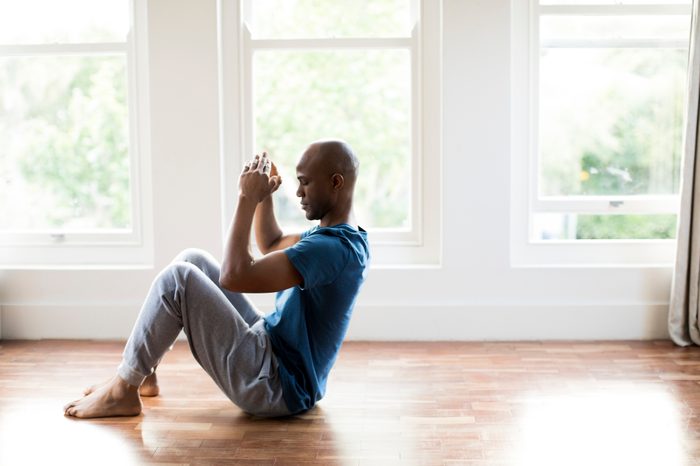
Exercise
Exercise boosts the body’s natural supply of feel-good chemicals known as endorphins and can be a powerful stress reducer, according to the American Psychological Association (APA).
“If you are able to access outdoor space, go for a walk, jog or bike ride,” Friedman suggests. It is OK to go outside as long as you don’t get within six feet of others.
LeMonda agrees: “At-home exercise classes streamed via Youtube or using other apps are a great way to stay in shape, boost immunity, and feel a sense of reward on a daily basis.”

Take a deep breath
There’s an app for this and many other mindfulness techniques, says Dr. Fornari. “Even if you don’t have mindfulness built into your life right now, it is useful to incorporate some into your daily routine and during stressful periods,” he says. Possibilities include deep breathing, listening to music and/or learning how to meditate. Plus, check out these apps for soothing your mind.
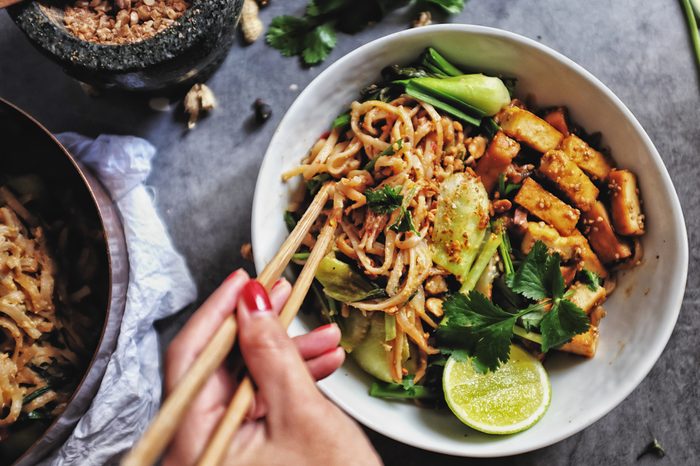
Avoid unhealthy behaviours
Drinking excessive amounts of alcohol, smoking, taking illicit drugs, and/or overdoing it on fat- and sugar-laden comfort food will ultimately make things worse. “Those who have poor coping mechanisms, such using alcohol, tobacco, or drugs to alleviate negative feelings, or those who tend to self-isolate in difficult situations may be more likely to develop depression,” LeMonda says.
“Those who also tend to alter health behaviours in the face of stress, for example, individuals who tend to over- or under-eat or those who develop poor or interrupted sleep may be more likely to experience depression.” Eating a healthy diet, getting regular sleep and engaging in physical activity each day are among the best ways to stay strong mentally and physically during this trying time, she says.

Taking a break from the news
“Watching the news 24/7 will only worsen anxiety and depression,” Dr. Fornari says. It is important to know what is going on, but there is no reason to keep the TV on constantly. The APA suggests identifying a few trustworthy sources, such as the federal Centers for Disease Control and Prevention (CDC), the World Health Organization and other non-sensational news media, and ignoring the rest.
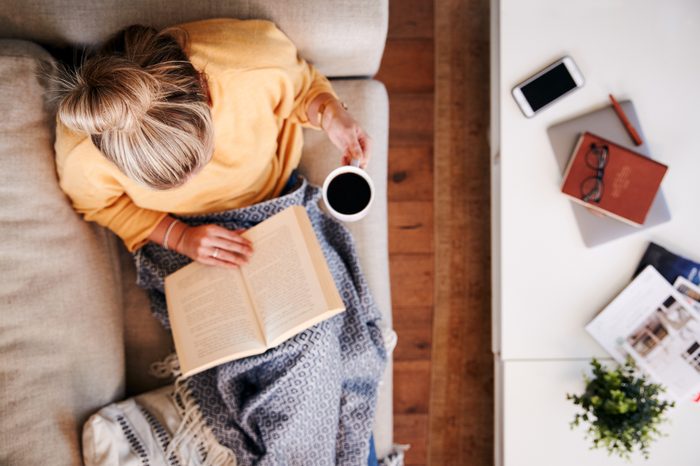
Go easy on yourself
This is no time to beat yourself up for coronavirus mistakes you may have made. Hindsight is always 20/20, Dr. Fornari says. “You may have let your child go to a play date or attend an event where someone ended up testing positive for Covid-19,” he says. “We are not perfect and can only be the best we can.”

Clean out your closets
Use the time at home to your advantage, LeMonda says. She suggests “at-home activities that increase feelings of efficacy are better than simply watching television,” she adds. “For example, reorganizing your closet, cleaning your kitchen, sorting through old paperwork, reading, doing crosswords, picking up a new hobby, like knitting, and cooking new recipes, are all ways that we can feel a sense of accomplishment during these times.” Treat this “pause” as a time to get organized and start new healthy habits.

Stick to a routine
Unstructured time is not good for many people, Dr. Fornari says. “Get up at the same time you might if you were going to work, get ready for work and put yourself on a schedule,” he says. “Take a break and a lunch hour.” This is also important for children who are now home from school.
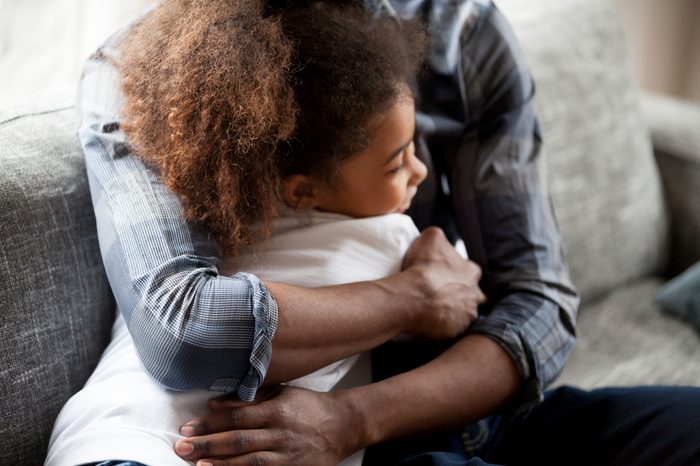
Stay calm for your kids
Parents need to be mindful of what they say in earshot of their kids, Dr. Fornari cautions. “Kids hear everything and parents have to set an example.” Visit the CDC’s guide on general principles for talking to children and learn how to talk to your kids about Covid-19.

Don’t make things worse
Don’t forward or retweet anxiety-inducing headlines, says Samantha Boardman, MD, a psychiatrist in private practice in Manhattan. Instead, Dr. Boardman suggests, share calming content such as Tom Hanks and Rita Wilson’s Quarantunes playlist. And definitely don’t fall for any of these coronavirus myths.
